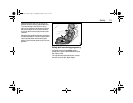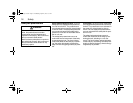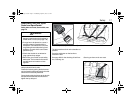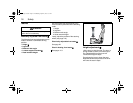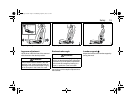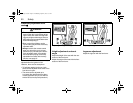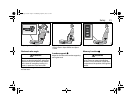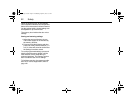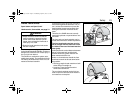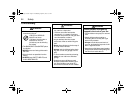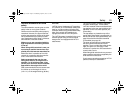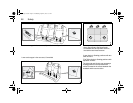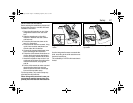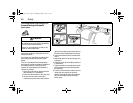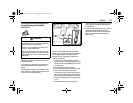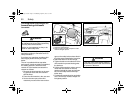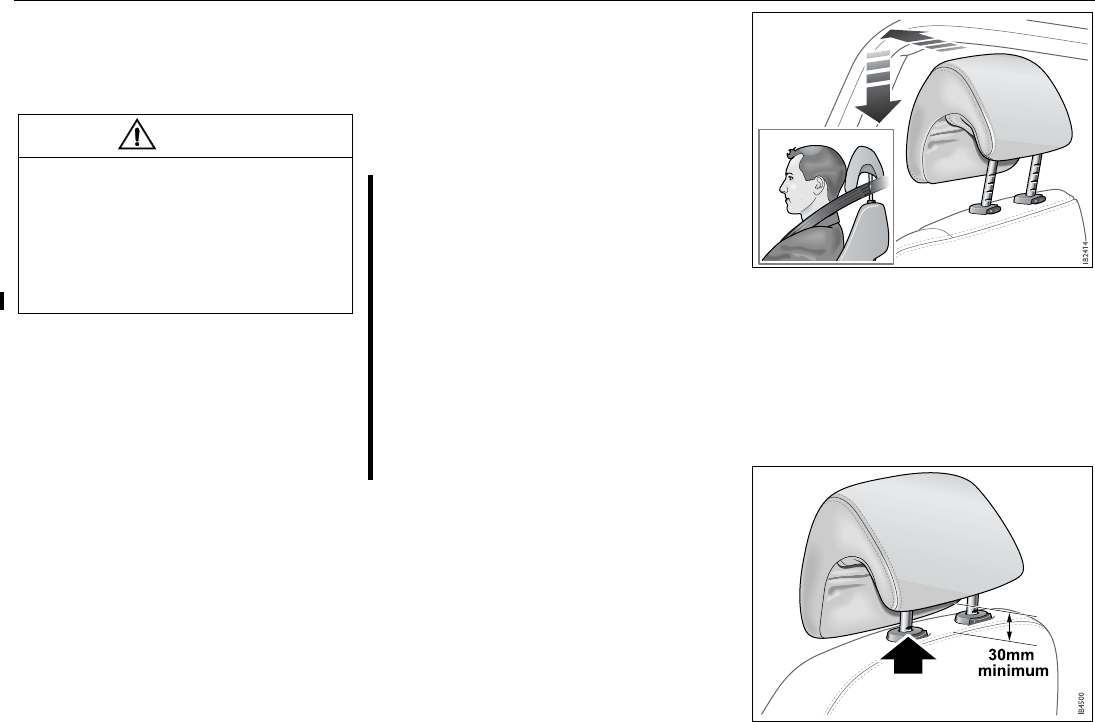
23Safety
Head restraints
Sport Sedan and SportCombi
Head restraint, Convertible, see page 74.
The front seats are equipped with Saab
Active Head Restraints (SAHRs). These are
designed to reduce the risk of neck injury if
the car is hit from behind.
The SAHR is a mechanical system, actu-
ated by body weight. The mechanism is built
into the top of the backrest, where it is con-
nected to the head restraint.
In the event of a rear-end crash, the body is
forced back against the backrest. This, in
turn, causes the mechanism to press the
head restraint forward and upward, thus
limiting the backward movement of the
head.
Therefore, the SAHR does not normally
need to be replaced or repaired after a rear-
end crash.
The front and rear head restraints can be
raised and lowered to a number of positions.
The front seat head restraints must be
set at a height where at least one notch
is visible on the rear of the head restraint
stem (pole).
In this position the vertical distance between
the top of the seat back and the head
restraint should be greater than 30 mm
when measured at the rear.
Under no circumstances should the front
seat head restraint be forced down below
this position.
• Raising: grasp the head restraint on both
sides and pull it straight up.
• Lowering: Press the head restraint
forward and downward.
The rear head restraints can be fully low-
ered to improve rearward vision when the
rear seats are unoccupied.
WARNING
• Adjust the head restraint so that the
head is optimally supported and the
center of the head restraint is at ear
height, thus reducing the likelihood of
neck injury in a crash.
• Raise the head restraints in the seats
that are occupied.
93_U S_M 07.book Page 23 W ednesday, April 12, 2006 9:30 AM



